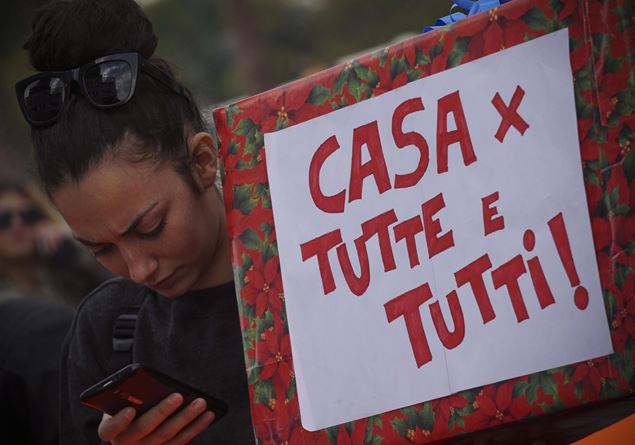“A missed opportunity to help families and young people find a home.” According to Caritas of Rome, a city where the housing problem is making itself felt more and more, having given up on raising taxes for short-term rentals from 21 to 26 percent will continue to have negative repercussions on families. The increase in the flat rate tax is foreseen in the financial system only for those who use the platforms. Without intermediaries the reduced rate remains. Furthermore, it is probable that, without a third party, and therefore without controls, the platforms will increase rents illegally. However, nothing is planned to encourage long-term rental, particularly for young families.
«Introduce adequate regulatory and financial tools to discourage and combat recurring speculative phenomena on housing assets, from the point of view of the property rental and purchase market and the related methods of access to credit, with interventions aimed at also making the social and economic parties directly involved responsible» was the appeal that Caritas of Rome addressed to the Government as early as 21 November 2024 on the occasion of the presentation of the seventh edition of the Report on Poverty in Rome.
A year later, the organization writes, commenting on the executive’s decisions, «the Government had opened important glimmers of opportunity in the first budget law proposal in which it planned to increase the tax burden for the so-called “short-term rentals”, temporary rentals linked above all to tourism. Unfortunately, once again, partisan interests prevailed and not the good of families in difficulty.”
Giustino Trinciadirector of Caritas in Rome, added that «a great alliance is urgently needed to respond to housing poverty which is based on everyone’s work for the common good, finding the necessary resources and approving the essential reforms, if we really want to intervene on the structural causes of this serious emergency. In this sense, fiscal instruments can represent an important lever for policies to combat poverty. It is not a question of penalizing private property, but of regulating a market that generates inequalities and increasingly affects disadvantaged families. Increasing the tax rate on short-term rentals is an important intervention, as would be to allocate these increased funds to support families living in housing poverty. Unfortunately, once again we are faced with a missed opportunity. We trust in the parliamentary work to ensure that this measure is reintroduced.”
Short-term rentals, according to Caritas’ analysis, “are a phenomenon that is radically modifying the urban and social fabric, particularly in the historic centers of large cities, increasing the cost of properties and rents”.
Only in Rome, in ten years, the population residing in the first municipality, i.e. the historic centre, has fallen by 38%, i.e. by over 20,000 people. In the same period, the offer of bed and breakfasts in the capital, through the platforms, reaches 35,000 between holiday homes and mini-apartmentsi, without considering the irregular market.
A dynamic that has dangerous repercussions on the social fabric of the Capital: in 2024, 5,286 eviction orders were issued, many for innocent arrears and others, increasingly increasing, for “end of lease” to allocate the property to short-term rental forms.


